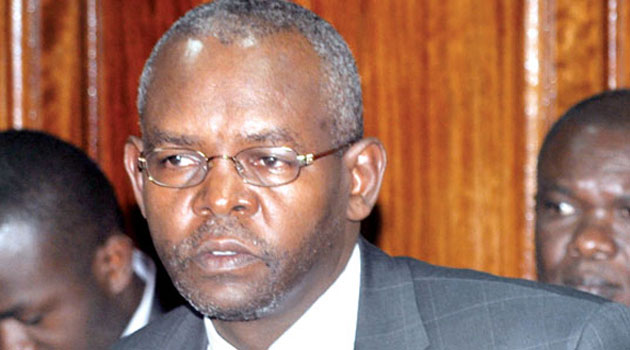Embattled National Treasury Cabinet Secretary Henry Rotich and his Principal Secretary Kamau Thugge share many things in common. Partly, they are some of the country’s best brains when it comes to matters economics. At the same time, they both worked at the International Monetary Fund (IMF) before joining government.
Between 2001-2004, Rotich was attached to the IMF local office in Nairobi as an economist. On the other hand, before joining the National Treasury (formerly ministry of Finance), Thugge worked with the IMF as economist, senior economist and deputy division chief.
Rotich assumed the National Treasury role in May 2013 and retained his position after the 2017 elections. In this portfolio, Rotich is charged with managing Kenya’s national government finances, including spearheading an efficient and sustainable public financial management under a new devolved system of governance, which is fundamental for promoting equitable socio-economic development and efficient delivery of services to Kenyans.
Rotich has been instrumental in prioritising increasing investment in infrastructure, agriculture, security, education and skills development to raise productivity, as well as improving the business environment to promote investments, consistent with the new Administration’s development agenda. More recently, Rotich led the largest successful debut bond issuance in Africa, where Kenya raised about Ksh 200 billion (US$ 2 billion) to finance infrastructure. The Eurobond has been voted the best emerging market deal in Africa and third in emerging markets in 2014.
Prior to his elevation as a Cabinet Secretary, Rotich was the Head of Macroeconomics at the ministry of Finance, since March 2006. Under this capacity, he was involved in formulation of macroeconomic policies that ensured an affordable and sustainable path of public spending aimed at achieving the Government’s development priorities. He was also involved in preparation of key budget documents including the Budget Policy Statements, as well as providing strategic coordination of structural reforms in the area of fiscal and financial sector.
Before joining the ministry of Finance, Rotich also worked at the Research Department of the Central Bank of Kenya since 1994.
He has also served in other senior positions. He was a Director on several Boards of State Corporations, including; Insurance Regulatory Board; Industrial Development Bank; Communications Authority of Kenya; and Kenya National Bureau of Statistics.
Rotich holds a Master’s Degree in Public Administration (MPA) from the Harvard Kennedy School, Harvard University, USA.
He also holds a Master’s Degree in Economics and a Bachelor’s Degree in Economics, both from University of Nairobi, Kenya.
On his part, Thugge previously worked in the Ministry of Finance as head of Fiscal and Monetary Affairs Department, Economic Secretary and as Senior Economic Advisor.
Dr Thugge has played a major role in influencing the design of Kenya’s current fiscal decentralisation system and has coordinated the formulation of legislation for implementing devolution, including the Public Finance Management Act, 2012; the Commission on Revenue Allocation Act, 2011; the Independent Officers (Appointment) Act, 2012; The County Government PFM Transition Act 2013; The County Allocation of Revenue Bill 2013; and the Division of Revenue Bill 2013/2014.

Dr Thugge is widely published and holds a Bachelor of Arts (Economics) degree from Colorado College, USA; Master’s degree in Economics from John Hopkins University, USA; and a Doctor of Philosophy (PhD) degree in Economics also from John Hopkins University.
There professional careers now appear destined for a downward spiral following their arraignment in court over the multi-billion Kimwarer, Arror dams scam.
Subsequently, President Uhuru Kenyatta is expected to appoint acting CS and PS to take charge of the National Treasury, which is critical to government operations and the country’s financial health.
On Monday, the Kenya Shilling lost ground against the US dollar sinking to levels last seen in November 2017 while Eurobond earnings were also affected.












Leave a comment